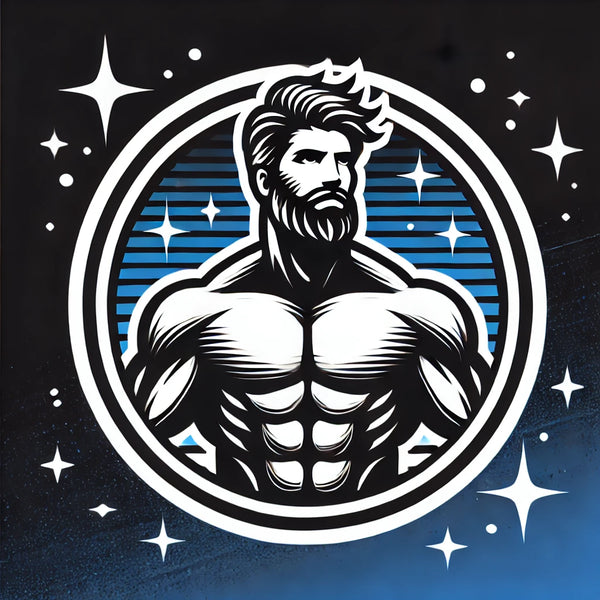Athena Storm Books
Alien Hunter's Prey: A SciFi Romance
Alien Hunter's Prey: A SciFi Romance
Couldn't load pickup availability
- Buy ebook
- Receive download link via email
- Send to preferred e-reader and enjoy!
Get the full, unabridged version with all the spice! Only available here!
This planet will be my death…if I am lucky.
I never should have survived the crash.
I should have gone down with my ship.
But instead, I opened my eyes and saw alien eyes.
He is an enemy.
He won't let me leave. When he sees my skills, I realize my freedom could be lost forever.
Now the alien wants me to help save his people. In return he’ll consider letting me go free back to my home.
There’s only one question I need to answer. By the time I’m done here and he’s through with me…
Will I even want to go home?
Chapter 1 Look Inside
Chapter 1 Look Inside
Chapter 1
Tara
If you’re lucky, there’s nothing more boring than space travel. Space, after all, is almost completely empty, and as long as you’re doing everything right, you never have to touch most of it. So in theory, nothing’s easier.
That’s the whole story, ninety percent of the time. We mechanics have invented a lot of fancy lingo to keep everyone else from figuring out that’s all spaceships do, but at the end of the day, there’s not much more to it.
Unless things go wrong. Then it gets a little more complicated.
I make it out of the station’s gravity well, at least. Everything has gone just the way it should have so far. That is to say, absolutely nothing has happened and I’m bored out of my mind. But now, in the very first solar system I have to pass through, things are going wrong.
“Oh, shit.” Three red lights are blinking on the dashboard. I’m solidly in the other ten percent of space travel now, and it isn’t the fun part.
I’m flying in an MX-520 Grasshopper, Model 20. The fact that they made twenty models of one ship says something about what a good design it is. It’s everything that you need to fly from one space system to another, all crammed into the least amount of space you could possibly fit it into. Nothing wasted, nothing extra. From an engineer’s perspective, the perfect spacecraft.
Perfect, that is, unless you’re inside one and some little bit of space dust ruptures one of the external fuel lines.
There’s no other way to read those three lights. The first indicates the ship is losing mass. If that was the only one blinking, I’d be scrambling for the sealant and hoping I didn’t start feeling light-headed. But the second and third lights tell a different story. The second means the engine isn’t getting the fuel it’s expecting, or it’s getting it unevenly. And if that isn’t clear enough, the third light tells me there’s a pressure drop in the left tank.
“I can deal with this,” I tell myself. “I can deal with this. I can probably deal with this.”
I’d better be able to deal with this, I decide, standing up and pacing back and forth inside the small, metal cabin. It’s not like there’s anyone else on the ship with me.
That had been a big part of the attraction of this whole thing. For once, I would actually be in charge of something. Even if it was only because the job was too dangerous and badly paid for anyone else to want it, it felt good. It felt nice to be the one making decisions for once. I finally got to just let the machines tell me what they needed from me, rather than having to always make my work fit some other mechanic’s standards.
I grew up on Zephyr Station. Ever since I was born, I was surrounded by machines. Everyone’s life depended on machines, and a lot of solving their problems did too. I was an orphan, but various scavengers from the scrapyard took care of me. They made a living hunting for junk that they could fix up and sell, and whenever they found something good, they would share some extra food for me and the other orphans. When I was young, I would sit and watch them work. Then I would go out and watch ships landing in the spaceports, thinking about all the small machines that made these big ones work.
Once I set myself to it, it didn’t take me long to get better than them at repairing things. They tried to do everything with only a superficial understanding of it. For instance, they would learn what an Atmosphizer was supposed to look like and then try to make whatever they found look like that, expecting it to work.
They didn’t know how to just look at a machine and listen to it. They couldn’t look at a design and immediately see what it was trying to do and then what was preventing it from doing it. Not in the way that I could.
Soon enough, I ended up on a team with two or three scavengers. The individual scavengers in the group would change every once and a while, but there were never more than three. They would bring me things, I would fix them up, and they would sell them. Selling was the part I was bad at. I could understand what a machine wanted, but people were harder. Especially aliens.
It didn’t take me long to figure out that other species didn’t think much of humans. Some of them were nice, and others weren’t, but at some level, none of them really thought humans would ever amount to much. We weren’t strong like some species, and we couldn’t do twenty-digit calculations in our head or survive 500 g’s of pressure like others could. Sure, we could do a few things well but it was always a trick when we did it, at least according to them. Like we’d cheated the system and figured out how to do stuff that really humans couldn’t do.
That was how they all sized me up when I first applied to the Mechanics Guild. Sure, I could repair things, but that was just something I had picked up according to them. Not like them, who had learned it honestly, the way their species does everything. So they rejected me. It never made sense, but it didn’t have to. Who was I, a human, going to complain to?
But eventually, the guild ran out of obstacles to throw in my way, and I finally got into the Mechanics Guild. I learned how to fix machines the way they wanted them fixed, which was a lot harder than just relying on my gut. But I learned, and I got along pretty well. Once you were in, the Mechanics Guild watched out for you. Even if you were human, amazingly.
And then, one day, I saw the signs posted throughout Zephyr Station.
“Deep space exploration! New open frontiers! Discover strange worlds! Mechanical or spacefaring experience required.”
It was one of those big explorations the government launched when there weren’t wars to fund instead. I should have known better than to be fooled by promises of adventure. Adventure is what they sell you when they can’t afford safety.
On the other hand, long shifts on commercial freighters and arguments with bosses who weren’t as good as I was were getting old. There was something exciting about the idea of something totally new. Of being out there, alone, somewhere no one had ever been before. Somewhere they hadn’t even heard of humans.
I went to sleep thinking about it, dreaming about it. At that point, it was only a matter of time.
Now, I have to face the other half of being alone. No one else to help me. No one there to blame if something goes wrong.
First step, shut off the left engine and seal the tank. No sense in losing more fuel than I had to.
The first and second lights both go off. Good. As I thought, no damage to the tank. Next stop, lower the right engine so it doesn’t throw off our course.
The next step would be to inform the station of what had happened. Then I’ll have to consider the possibility of spacewalking to figure out the problem.
Unless of course…
That’s the moment that the alarm sounds and no less than fourteen different lights all beep red at once.
I’ve always been good at knowing what machines are telling me, and at this moment, the machines are telling me to panic.
I realize what must have happened. The brief period where one engine was running on full power and the other was on half has thrown us off course. Normally, I would have had plenty of time to contact the station and get a calculation for a new trajectory. But this had happened inside a solar system.
I pull up the screen that shows the computer’s guess of our current direction. Sure enough, the ship has turned directly into the gravity well of Melkora. Now, with both of my engines off, I’m being pulled straight into the atmosphere.
I’ve heard about Melkora. There were a few big cities there once upon a time, but they were more or less destroyed during the Border Wars. Ever since, forests have grown back over everything, and the planet has been left to the not-exactly-friendly native species and survivalist weirdos who want to stay there. In other words, no chance of a midair rescue.
There’s nothing else I can do. I’m going to have to crash land and hope for the best.
Someone other than me might see some kind of irony about a ship that was sent to discover new planets crashing on one of the old planets the government left to rot. All I see is that my current course is straight down, only one of my engines is working, and the ground is approaching very, very fast.
There’s no time to do a calculation. I’ll have to do it all on instinct. Worse, I have to be careful with the engine, turning it on enough to slow us down, but not so much that the spin will make me pass out. As for the landscape, the only thing I can do is hope that it isn’t quite as bumpy as it looks from all the way up here.
A patch of forest appears on the view screen. It isn’t as good as water, but it will have to do. Quick bursts of the engine. Keep the angle low, rely on the air to brake.
The entire cabin turns around once, twice. This isn’t going to be pretty, but I have the right angle. Another spin, and more alarms start blaring.
I’ve got it, thank you.
At that moment, the ship hits the trees, and I’m suddenly surrounded by the loudest sound I’ve ever heard in my life.
Share




